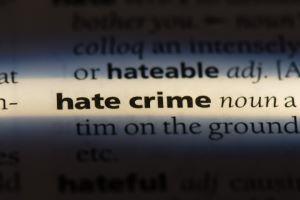What Classifies a Criminal Offense as a Hate Crime in Texas?
 As increased awareness of racial discrimination has circulated across the country, many are left wondering whether the words and actions that they are seeing in news reports are considered hate crimes or other types of criminal offenses. Many racial attacks that have occurred over the last several months have been targeted at Asian-Americans, and in many cases, this violence has been in response to the COVID-19 pandemic, with some people falsely blaming Asians for the origin and spread of the virus. In fact, just a few weeks ago, a video was released of a violent attack in an Asian-owned beauty store in Houston. Some may be wondering whether violent crimes of this nature qualify as hate crimes.
As increased awareness of racial discrimination has circulated across the country, many are left wondering whether the words and actions that they are seeing in news reports are considered hate crimes or other types of criminal offenses. Many racial attacks that have occurred over the last several months have been targeted at Asian-Americans, and in many cases, this violence has been in response to the COVID-19 pandemic, with some people falsely blaming Asians for the origin and spread of the virus. In fact, just a few weeks ago, a video was released of a violent attack in an Asian-owned beauty store in Houston. Some may be wondering whether violent crimes of this nature qualify as hate crimes.
Texas Hate Crime Laws Explained
Texas legislators took a strong stand against racial discrimination in 2001 after James Byrd, Jr. was violently killed by white supremacists in 1998. In response to the Black man’s death, previous state senator and now Harris County Commissioner Rodney Ellis pushed for sentencing enhancements for those found guilty of committing a hate crime. In other words, those who commit a hate crime will face increased jail time when compared to other crimes of that same magnitude. In order for an action to be considered a hate crime, one must prove that the person “acted out of bias towards the victim’s perceived color, race, religion, disability, national origin, gender, age, and/or sexual preference.
While proving that someone’s actions classify as a hate crime may seem like an easy task, this is more challenging than it often appears. According to ProPublica’s 2010-2015 analysis, there were 981 potential hate crime cases, and only five, or 0.5 percent, led to specific hate crime convictions. The reason it is so difficult? One must prove the intent of the person behind the crime. Pointing out that the statements or actions were discriminatory is often not enough to be convicted of a hate crime. Hate crime cases require the prosecutor to prove beyond a reasonable doubt that the intent behind the person’s actions was motivated by the victim’s protected status.
What Are the Consequences of Hate Crimes?
On offense may be considered a hate crime if it meets the criteria outlined above. For instance, a person may be found guilty of assault, and depending on their motives, they may also be found guilty of a hate crime. The hate crime aspect of the charge escalates the guilty party’s penalties. According to Texas law, for those found guilty of a hate crime that is not a first degree felony or class A misdemeanor--the two most severe crime levels in their category--the punishment for the offense will be increased to the next highest category of offense. So, if the individual was charged for a third degree felony (which can be punished by 2-10 years of imprisonment), that person will be given the penalties of a second degree felony (which can be punished by 2-20 years of imprisonment) for committing a hate crime.
Contact a Collin County Hate Crime Defense Lawyer
Not only will facing hate crime charges significantly escalate your penalties, but being accused of this type of offense can also ruin your reputation in the eyes of others. Unfortunately, the implications of a hate crime may even impact a judge or jury’s opinion before you even step into the courtroom. The Crowder Law Firm, P.C. believes that everyone should be granted a fair trial, no matter the circumstances of the case. For help with your defense strategy, contact our Plano, TX hate crime defense attorney at 214-544-0061 and schedule your free consultation.
Sources:
https://www.khou.com/article/news/crime/breaking-down-texas-hate-crime-laws/285-2bf9d3c9-6a02-4fa5-873f-084bb360ea91
https://statutes.capitol.texas.gov/Docs/PE/htm/PE.12.htm
















